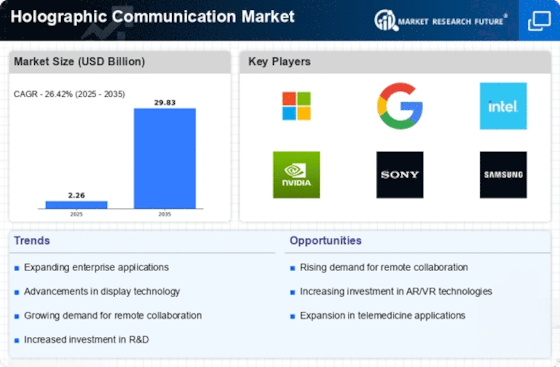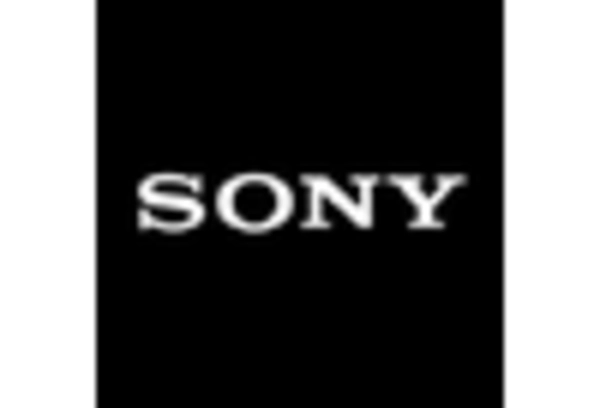Market Trends
Key Emerging Trends in the Holographic Communication Market
The market has witnessed tremendous growth over the last few years due to several emerging market trends aimed at meeting increased demand for immersive and realistic modes of communication. One important trend driving the growth of holographic communications markets is the expanding need for remote collaboration facilities focused on communicating telepresence solutions. As globalization increases among businesses and remote working grows, there is an increasing need for good communication tools that bridge physical distance between persons as well as teams. Holographic communications technology provides distinctive immersive experiences where users can interact with 3D holograms resembling live participants who are located far away from them. Furthermore, there is a shift towards integrating existing communication platforms with holographic communication technology in this market today. In fact, developers are making efforts to ensure that these integrated solutions work seamlessly, such as popular video conferencing systems, virtual reality software, or collaboration apps. Moreover, healthcare, education, and entertainment sectors not only require but also need much more widespread use of holocommunication services within their activities in the near future. For instance, by supporting remote consultations with expert physicians and enabling surgeries in healthcare settings from anywhere else via internet connections, even at patients' homes, using this kind of technology, holographic communication can revolutionize patient care in healthcare organizations. On the other hand, remote learning can be improved through interactive virtual classrooms created by holographic communication. Miniaturization and portability are some of the market trends in holography communication. In the past, early solutions were heavy, with specialized equipment for holographic communications available to few. Nevertheless, due to technological advancements, there are now small-scale portable options for both display systems and displays. Additionally, there is increased investment in research and development aimed at improving holographic communication technology in this market. Similarly, mixed reality and augmented reality (MR/AR) integration has become more pronounced as part of broader indications that the market is warming up to it. Holographic communications solutions are being developed to integrate with MR/AR, allowing users to blend virtual reality environments within real-life interactions, thereby changing how people communicate with each other, as mixed reality enhances interaction. Such integration helps make the overall experience more interactive and immersive, thereby enhancing seamless, enhanced communication among its users.



















Leave a Comment